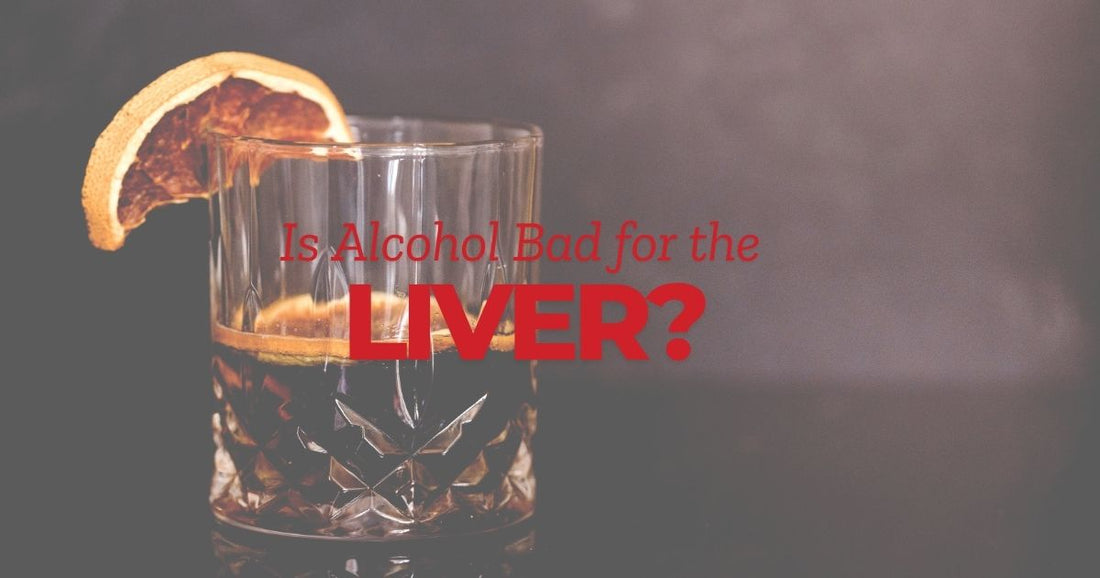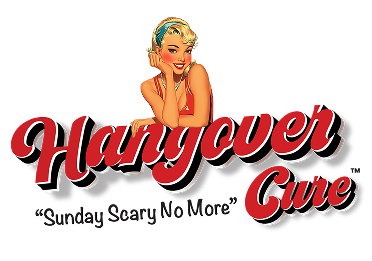
Is Alcohol Bad for the Liver?
Share
Alcohol consumption is common in social settings, but have you ever wondered how it affects your liver? The liver is responsible for breaking down and detoxifying alcohol, but excessive drinking can lead to serious health problems. This blog will explain how alcohol impacts liver health, debunk common myths, and provide tips on protecting your liver while drinking. If you’re a health-conscious individual, social drinker, or professional looking for ways to minimize alcohol’s effects, this guide is for you.
How Alcohol Affects the Liver
The Liver’s Role in Processing Alcohol
The liver plays a crucial role in metabolizing alcohol. When you drink, alcohol is absorbed into your bloodstream and processed by the liver. Here’s how it works:
- Alcohol dehydrogenase (ADH) breaks ethanol down into acetaldehyde, a toxic byproduct.
- Aldehyde dehydrogenase (ALDH) then converts acetaldehyde into acetic acid, which is further broken down into carbon dioxide and water for elimination.
- The liver can only process a limited amount of alcohol per hour. Excessive drinking overwhelms this system, leading to alcohol accumulation in the blood and increased toxicity.
How Much Alcohol is Too Much?
The recommended alcohol intake varies by gender and health status:
- Men: Up to 2 drinks per day
- Women: Up to 1 drink per day
- Binge drinking: 5 or more drinks in a short period (4 for women) is considered excessive. Regular overconsumption increases the risk of liver damage, while occasional drinking in moderation may have less impact.
Short-Term vs. Long-Term Effects of Alcohol on the Liver
Short-Term Effects of Alcohol
- Increased liver workload: The liver prioritizes alcohol metabolism over other functions like fat metabolism.
- Dehydration and inflammation: Alcohol depletes water from the body, stressing liver cells.
- Toxic buildup: Acetaldehyde accumulation can cause nausea, headaches, and fatigue.
Long-Term Effects of Alcohol
1. Fatty Liver Disease
- The earliest stage of liver damage, caused by fat accumulation.
- Often reversible with lifestyle changes.
2. Alcoholic Hepatitis
- Inflammation and liver damage due to prolonged alcohol exposure.
- Symptoms include jaundice, nausea, and pain.
3. Fibrosis and Cirrhosis
- Fibrosis is early scarring, while cirrhosis is severe scarring that impairs liver function.
- Cirrhosis is often irreversible and can lead to liver failure.
Myths About Alcohol and Liver Health
“Drinking Water Prevents Liver Damage”
Staying hydrated helps with overall health, but it doesn’t prevent liver damage caused by alcohol metabolism.
“Liver Damage Only Happens to Heavy Drinkers”
Even moderate drinkers can develop fatty liver disease, especially if combined with poor diet and lifestyle habits.
“You Can Reverse Any Liver Damage”
Early-stage liver damage can be reversed, but advanced conditions like cirrhosis are permanent.

How to Protect Your Liver While Drinking
Drink in Moderation
Follow recommended alcohol limits and take breaks from drinking to allow your liver to recover.
Support Your Liver with Proper Nutrition
Eat foods rich in antioxidants, vitamins B & C, and healthy fats to support liver health.
Take Liver-Friendly Supplements
Certain supplements help protect and detoxify the liver:
- Milk Thistle: Supports liver cell regeneration.
- N-acetylcysteine (NAC): Helps reduce oxidative stress.
- Hangover Cure Supplements: Formulated to aid liver detoxification and recovery.
Stay Hydrated and Limit Sugar Intake
Alcohol causes dehydration and blood sugar fluctuations, worsening liver stress. Drinking water between alcoholic beverages can help reduce strain.

Frequently Asked Questions About Alcohol and Liver Health
How do I know if my liver is damaged from alcohol?
Signs of liver damage include fatigue, jaundice, swelling in the abdomen, and dark urine. A liver function test can provide a clearer picture.
Can the liver heal itself after drinking?
Yes, the liver has a remarkable ability to regenerate. However, continuous alcohol consumption can lead to irreversible damage.
What are the best foods and supplements for liver health?
Leafy greens, fatty fish, turmeric, and supplements like NAC and milk thistle are beneficial.
Why Choose Hangover Cure for Liver Support?
Replenishes Essential Nutrients Lost from Alcohol Consumption
Alcohol depletes essential vitamins and minerals. Hangover Cure provides a balanced formula to replenish what’s lost.
Supports Liver Detoxification with Key Ingredients
Our supplements include ingredients like NAC and milk thistle to aid liver function and reduce oxidative stress.
Aids in Hydration and Reduces Inflammation
Proper hydration and anti-inflammatory ingredients help mitigate the effects of alcohol on the liver.
Conclusion and Call-to-Action
While alcohol can be harmful to the liver, smart drinking habits and proper nutrition can reduce the risks. If you enjoy occasional drinks but want to prioritize liver health, Hangover Cure can help.
Want to protect your liver while drinking? Try Hangover Cure for complete recovery support!
Shop Now or read more about alcohol metabolism and recovery.
